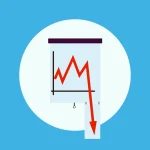October the 20th, 2024 – The World Bank expects 3.5% Croatian GDP growth, with continued good forecasts going forward. Despite this good news, education reforms, and huge ones, are being requested.
As Poslovni Dnevnik writes, in the most recent report on developing countries across Europe and Central Asia (ECA Economic Update), the World Bank forecasts real Croatian GDP growth of 3.5% in 2024. According to the World Bank forecast, this growth should be 3% in 2025, and 2.8% in 2026.
Compared to the projection from June, the World Bank improved the forecast for Croatian GDP growth for this year by 0.5 percentage points, for 2025 by 0.2 percentage points, and for 2026 by 0.1 percentage points.
“The Croatian economy is expected to grow by 3.5% in 2024, mainly thanks to strong domestic demand. Although the state deficit will increase significantly in 2024, it’s expected that over the next two years, total state spending will remain limited, which, in combination with the current economic growth, should enable a gradual fiscal adjustment and a continuous reduction of the public debt,” the World Bank’s statement read.
It was added that in the last three years, the Croatian economy grew more quickly than the EU average, as well as that Croatian GDP per capita (according to the purchasing power standard) in 2023 reached 76% of the EU average, compared to 67% back in 2019.
When it comes to developing countries across Europe and Central Asia, the World Bank assesses that economic growth in the entire region is stabilising. It is doing so despite multiple crises, but at lower levels than in the early 2000s. This year, overall moderate growth of 3.3% is expected in the region compared to 3.5% in 2023, with an additional decrease to 2.6% in 2025.
This is significantly lower than the average growth of 5.1% in the period from 2000 to 2009. It’s also lower than the growth required for middle-income countries in the region to reach their goal of high-income status within one or two generations, according to the World Bank.
They also noted that owing to lower inflation this year, some central banks have started to lower their interest rates, but that caution prevails due to concerns about continued price pressures. The report calls for a major reform of education systems in not only Croatia but the wider region. This is especially the case when it comes to higher education, in order to develop the human resources needed for stronger economic growth and strengthening convergence with high-income countries.











